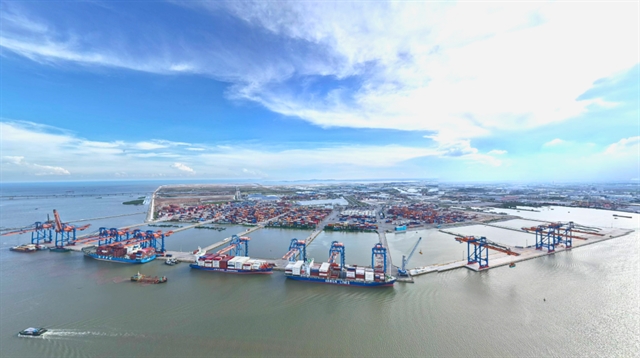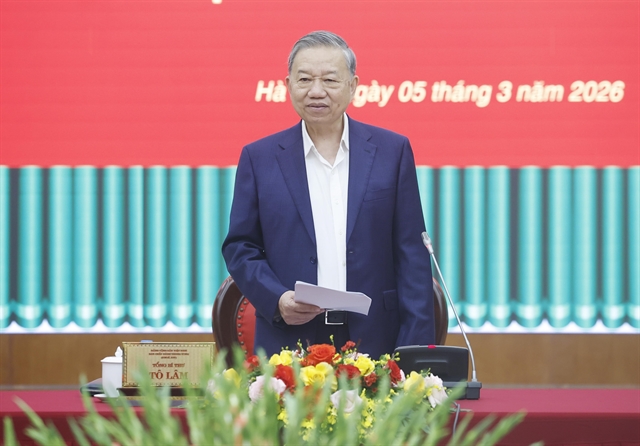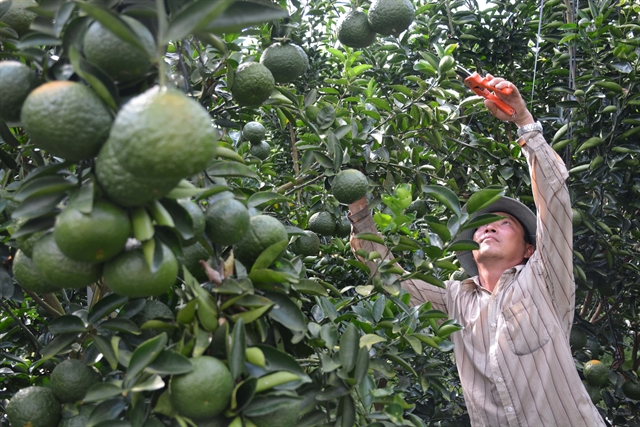 Economy
Economy

The Cửu Long (Mekong) Delta province of An Giang plans to speed up mechanisation of agriculture this decade to improve yields and quality and reduce losses in the harvest and post-harvest stages.

|
| A king orange orchard in An Giang Province’s Tri Tôn District. – VNA/VNS Photo Công Mạo |
AN GIANG – The Cửu Long (Mekong) Delta province of An Giang plans to speed up mechanisation of agriculture this decade to improve yields and quality and reduce losses in the harvest and post-harvest stages.
It targets, by 2030, the use of machines to till 95 per cent of lands, seed 90 per cent, irrigate 98 per cent, and harvest 100 per cent.
The province has nearly 2,000 combine harvesters that harvest 98 per cent and other machinery that fertilise and spray pesticide on more than 90 per cent of paddies, according to its Department of Agriculture and Rural Development.
The other targets include equipping 90 per cent of livestock farms with automatic food and water supply systems by 2030, and 70 per cent with automatic sanitation systems.
In aquaculture, 50 per cent of farms will be equipped with automatic equipment.
The province will build 11 automatic systems for monitoring the water environment in concentrated aquaculture areas.
Trần Anh Thư, deputy chairman of its People’s Committee, said to achieve the targets the province would restructure agriculture to increase scale and effectively implement policies for stimulating mechanisation.
It would step up research into agricultural machinery and facilities, he added.
Nguyễn Sĩ Lâm, director of the department, said the mechanisation and automation have contributed greatly to reducing production costs and improving the quality and efficiency of rice.
Granting production codes
An Giang, which has among the largest agricultural areas in the delta, is speeding up issuance of production codes to expand exports.
To get a code, farms should have a minimum of 10ha and grow a single agricultural product to VietGAP or other equivalent standards.
They need to maintain a cultivation diary for origin traceability and follow regulations on pesticide use.
The province has so far granted 180 codes for mango, banana, jackfruit, rice and glutinous rice growing areas.
Of them 104 have been granted to co-operative groups, co-operatives and companies with a total of 1,973ha that export to high requirement markets like the EU, Japan and South Korea.
Lâm said the grant of the codes and their oversight are important for the export of key agricultural products.
They also encourage farmers to grow agricultural produce to safe standards, ensure quality and help link stake holders in production and consumption, he said.
To improve the quality of agricultural products and meet the requirements of export markets, the department would help speed up the issuance of the codes for key produce like rice, vegetables and fruits, he promised.
The province plans to have a total of 860 rice, vegetable, mango, longan, jackfruit, durian, and citrus fruit growing areas having the codes by the end of this year. – VNS




